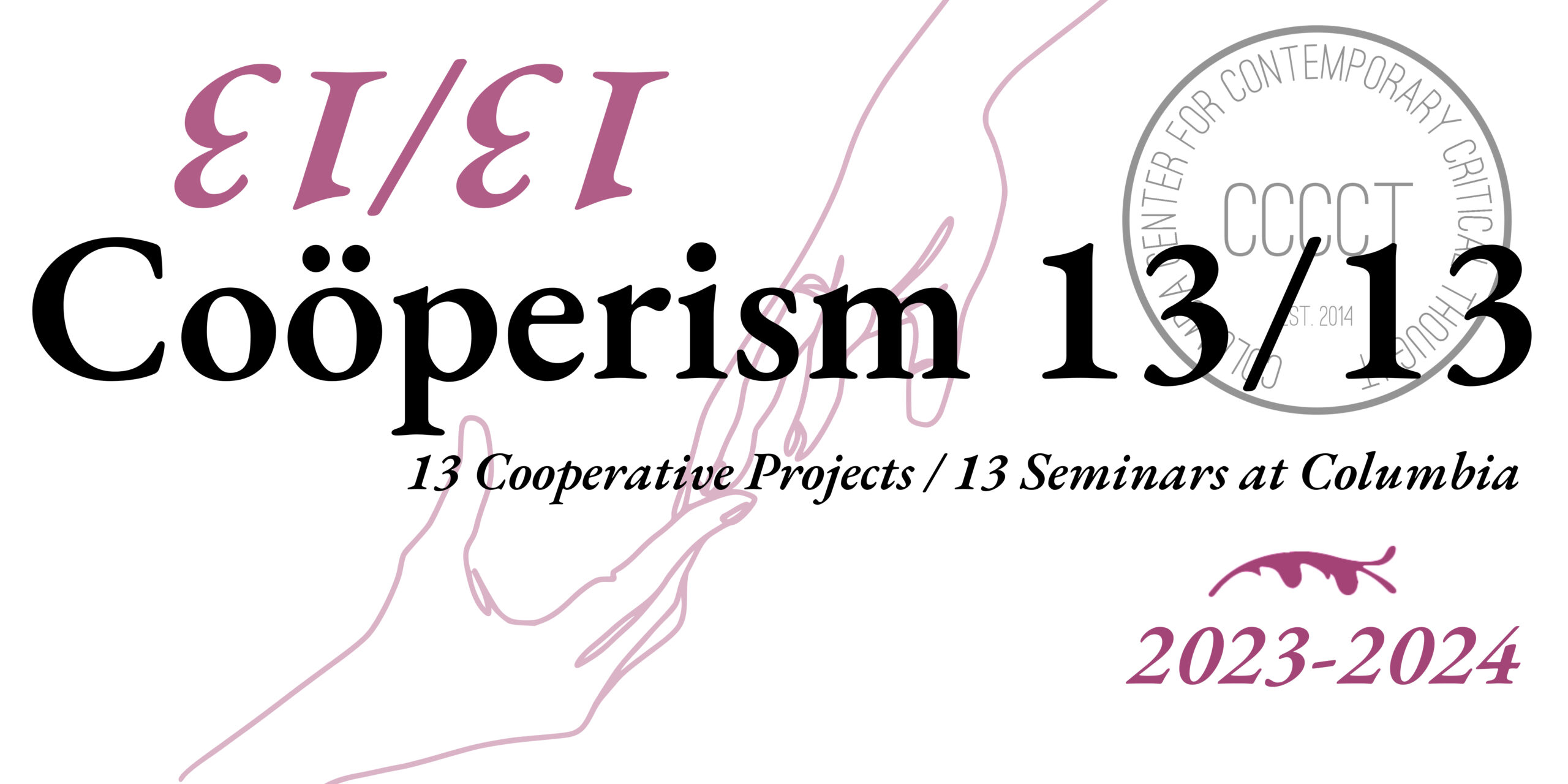By Bernard E. Harcourt
In this fourth seminar, Coöperism 4/13, we turn to Brazil’s Landless Workers Movement and other political movements in Brazil to explore how cooperation infuses these social movements. Today, Brazil’s Landless Workers Movement (MST) may be one of the largest social movements in Latin America. Reports suggest there are as many as 460,000 families who are part of the movement. Those families work and live in collectives on unused lands they have appropriated, taken over, settled, and turned into productive agrarian farmland.[1] They have done so most often through forms of cooperation, operating as large collectives.
These are not just rogue occupations. They can be sanctioned under Brazilian law that requires farmland to remain productive. Once the occupations take place, and the collectives begin to farm the land, their lawyers can claim title to the land in Brazilian courts and get title that way. According to reports, “The Brazilian courts and government have recognized thousands of settlements as legal under laws that say farmland must be productive.”[2] The result has been an extraordinary working and living situation for hundreds of thousands of impoverished families who have lifted themselves out of poverty, and an extraordinary production of agricultural goods. About 60% of the movement’s occupations have been ratified.
In these occupied spaces, there is collective farming, so people are working together. But there are other forms of cooperation between the residents—and between them and their lawyers—involving the ways in which they collectively farm the land and share equipment, plows and tractors, and also run public schools. According to the Times, there are roughly two thousand movement schools across Brazil, and “the schools make protests part of the curriculum and teach students about farming, land rights and inequality.”[3]
The first occupations trace back to 1978, and MST was founded a few years later in 1984. During the 1990s, there were hundreds of occupations, with for example 167 new occupations in 1996, and 244 in 1997.[4] The number of occupations per year has fluctuated as a result of political circumstances, with highs of hundreds of occupations per year two decades ago, coming down to about 15 occupations per year under the Bolsonaro regime, and now back up again. According to The New York Times, “there have been 33 occupations in less than four months of Mr. Lula’s presidency.”[5]
These occupations have been fraught and involve difficult struggles that have, of course, caused a lot of backlash and resistance from local farmers and ranchers, including a lot of retaliatory violence.[6] As a result, there have been transformations in the forms of cooperation within the movement and an evolution towards a particular kind of “camponês” (“someone from the countryside”) form of cooperation associated with the farmworker cooperative attitudes towards the land that are unique to this movement.[7] There is a long history of struggle to create the kind of cooperation that is most successful in this particular political and social context.
To help us explore these unique forms of cooperation, we welcome two brilliant critical theorists, Bethania Assy of the PUC University of Rio de Janeiro and Antonio Pele also of PUC-Rio University and the EHESS. They will discuss not only the Brazilian Landless Workers Movement but other social movements and forms of resistance and how cooperation infuses those forms of resistance in Brazil.
Welcome to Coöperism 4/13!
Notes
[1] Jack Nicas, “If You Don’t Use Your Land, These Marxists May Take It,” The New York Times, April 30, 2023, p. A8, available at https://www.nytimes.com/2023/04/30/world/americas/brazil-land-occupation.html.
[2] Nicas, “If You Don’t Use Your Land, These Marxists May Take It,” p. A8.
[3] Nicas, “If You Don’t Use Your Land, These Marxists May Take It,” The New York Times, p. A8.
[4] John L. Hammond, “Law and Disorder: The Brazilian Landless Farmworkers’ Movement,” Bull. Latin Am. Res., Vol. 18, No. 4, pp. 469-489, 1999, at p. 472.
[5] Nicas, “If You Don’t Use Your Land, These Marxists May Take It,” p. A8.
[6] Hammond, “Law and Disorder,” p. 475-76.
[7] Aldiva Sales Diniz and Bruce Gilbert, “Socialist Values and Cooperation in Brazil’s Landless Rural Workers’ Movement,” Latin American Perspectives, Issue 191, Vol. 40 No. 4, July 2013, p. 19-34, at p. 31 n.1, available at https://cooperism.law.columbia.edu/files/2023/10/Socialist-Values-Cooperation.pdf.
